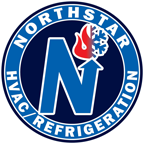Navigating BERDO Compliance with Northstar Refrigeration
Written by Ed Rice
Introduction
As cities across the globe strive to combat climate change, Boston is leading the charge with its Building Emissions Reduction and Disclosure Ordinance (BERDO). This ambitious regulation aims to significantly cut greenhouse gas emissions from large buildings, a major contributor to urban carbon footprints. At Northstar Refrigeration, we understand the challenges and opportunities that BERDO presents. Our goal is to help building owners not only follow these regulations but also achieve greater energy efficiency and cost savings.
What is BERDO?
Boston’s Building Emissions Reduction and Disclosure Ordinance (BERDO) requires large buildings to report their annual energy and water usage. The ordinance targets buildings over 20,000 square feet and residential buildings with 15 or more units. This data is publicly shown, promoting transparency and accountability.
Starting in 2025, BERDO will enforce strict emissions performance standards that buildings must meet, progressively tightening these standards until reaching net-zero carbon emissions by 2050. Non-compliance could result in significant fines and other penalties, making it crucial for building owners to act now.
How Northstar Refrigeration Can Help
1. Comprehensive Energy Audits: Our team conducts thorough energy audits to identify inefficiencies in your current refrigeration, heating, and cooling systems. We assess energy usage patterns, system performance, and potential areas for improvement.
2. Energy-Efficient Upgrades: Upgrading to modern, energy-efficient refrigeration and HVAC systems can drastically reduce a building’s overall energy consumption and emissions. Northstar Refrigeration offers state-of-the-art solutions tailored to meet BERDO’s performance standards.
3. Customized Retrofit Solutions: For buildings with existing systems, we provide customized retrofitting options that enhance energy efficiency without the need for complete system overhauls. These upgrades can include advanced control systems, improved insulation, and high-efficiency components.
4. Ongoing Monitoring and Maintenance: Continuous monitoring is essential for supporting optimal system performance. Our advanced monitoring technologies and regular maintenance services ensure that your refrigeration and HVAC systems run efficiently, helping you stay compliant with BERDO standards.
5. Comfort Cooling Solutions: In addition to refrigeration, we specialize in comfort cooling systems that ensure optimal indoor temperatures while maintaining energy efficiency. These systems are crucial for both occupant comfort and regulatory compliance.
Benefits of Partnering with Northstar Refrigeration
Compliance and Peace of Mind: By working with Northstar Refrigeration, building owners can confidently meet BERDO’s reporting and performance requirements, avoiding fines and penalties.
Cost Savings: Energy-efficient systems lead to significant cost savings on utility bills. Over time, these savings can offset the initial investment in upgrades and retrofits.
Enhanced Sustainability: Reducing your building’s carbon footprint contributes to a greener, more sustainable future. It also enhances your property’s marketability to eco-conscious tenants and investors.
Open Discussion
We invite you to join the conversation about BERDO and its impact on Boston’s building landscape. How is your building preparing for these changes? What challenges are you facing in achieving compliance? Share your thoughts and experiences in the comments below.
At Northstar Refrigeration, we’re committed to supporting you every step of the way. Contact us today to learn more about how we can help you navigate BERDO compliance and build a more energy-efficient future.
Edward Rice
Director of Marketing
Northstar Refrigeration, Inc.
95 Camelot Drive, Unit 1 | Plymouth, MA 02360
erice@northstarhvacr.com | www.northstarhvacr.com
p: (508) 888-3692 x115 |
m: (508) 561-8638



